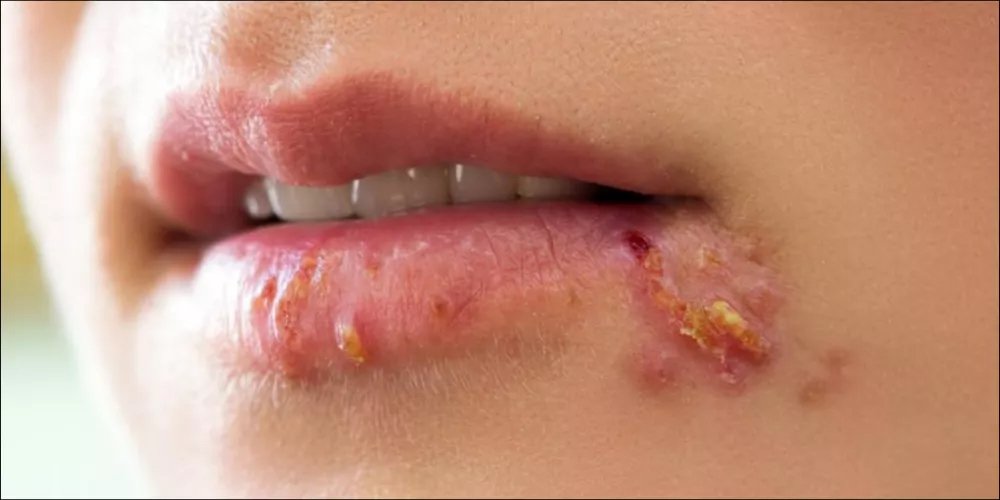Herpes, caused by the herpes simplex virus (HSV), is one of the most common viral infections in the world. It is a contagious disease that can manifest as oral or genital herpes, depending on the strain of the virus. Despite its prevalence, herpes remains a misunderstood condition. Many people live with the virus without knowing, while others experience frequent outbreaks that affect their quality of life.
In this article, we will explore the causes, symptoms, and treatment options for herpes, as well as ways to manage and prevent outbreaks. Whether you’re dealing with a diagnosis or just curious, understanding this virus is the first step toward effective management.
What is Herpes?
Herpes is an infection caused by the herpes simplex virus (HSV), of which there are two main types:
- HSV-1: This strain typically causes oral herpes, which leads to cold sores or fever blisters around the mouth. However, HSV-1 can also cause genital herpes through oral-genital contact.
- HSV-2: This strain is primarily responsible for genital herpes, a sexually transmitted infection (STI) that results in sores and blisters in the genital area.
Both types of herpes are lifelong infections. Once the virus enters the body, it remains dormant in the nerve cells and can reactivate at any time, leading to recurrent outbreaks.
Causes of Herpes
Herpes is transmitted through close contact with an infected person. The virus spreads through skin-to-skin contact with the infected area during an outbreak or, in some cases, even when there are no visible symptoms. Here are the common ways herpes is transmitted:
- Oral-to-oral contact: HSV-1 is often spread through kissing or sharing items like utensils or lip balm with someone who has oral herpes.
- Sexual contact: Both HSV-1 and HSV-2 can be transmitted through vaginal, anal, or oral sex with an infected person, particularly if they have active sores.
- Mother-to-child transmission: A pregnant woman with genital herpes can pass the virus to her baby during childbirth, although this is rare.
It’s important to note that herpes can be spread even when there are no visible sores, through a process known as viral shedding.
Symptoms of Herpes
Herpes symptoms vary depending on the type of virus and whether it’s a primary infection or a recurrent outbreak. Some people may have the virus and never experience symptoms, while others may experience painful outbreaks.
1. Oral Herpes (HSV-1)
- Cold sores: The most common symptom of oral herpes is cold sores or fever blisters around the mouth. These sores start as small blisters, which then break open and form painful ulcers before crusting over and healing.
- Tingling or itching: Many people experience a tingling, itching, or burning sensation around the mouth before a cold sore appears.
- Flu-like symptoms: During the first outbreak, some people may experience fever, body aches, and swollen lymph nodes.
2. Genital Herpes (HSV-1 and HSV-2)
- Sores and blisters: Genital herpes causes painful blisters and ulcers on the genital and anal areas, as well as the surrounding skin.
- Pain during urination: Sores near the urethra can make urination painful.
- Itching or discomfort: Before an outbreak, some people may experience itching, tingling, or discomfort in the genital area.
- Flu-like symptoms: Similar to oral herpes, a primary outbreak of genital herpes can be accompanied by fever, swollen lymph nodes, and body aches.
Recurrent Outbreaks
After the initial outbreak, the virus remains dormant in the body. While some people may never experience another outbreak, others may have recurrent episodes, particularly during times of stress, illness, or weakened immune function. These recurrent outbreaks are usually milder and shorter in duration compared to the initial episode.
Diagnosing Herpes
If you suspect you have herpes, it’s essential to consult a healthcare provider for a proper diagnosis. Diagnosis typically involves:
- Physical examination: A doctor may visually examine the sores or blisters.
- Viral culture: A sample from the sore may be taken to test for the presence of the herpes virus.
- Blood tests: Blood tests can detect antibodies to HSV-1 or HSV-2, indicating a past or current infection.
Early diagnosis and treatment are crucial to managing symptoms and reducing the risk of transmission to others.
Treatment Options for Herpes

While there is no cure for herpes, antiviral medications can help manage symptoms, reduce the frequency of outbreaks, and lower the risk of transmission. Here are the common treatment options:
1. Antiviral Medications
- Acyclovir: One of the most commonly prescribed antiviral medications, acyclovir helps shorten the duration of outbreaks and prevent future episodes.
- Valacyclovir: This medication is similar to acyclovir but is taken less frequently, making it a convenient option for many people.
- Famciclovir: Another antiviral medication used to treat both oral and genital herpes.
These medications are most effective when taken at the first sign of an outbreak, such as tingling or itching, and can also be taken daily as suppressive therapy to reduce the risk of transmission.
2. Over-the-Counter Treatments
For oral herpes, over-the-counter creams and ointments can help relieve pain and speed up the healing process. These treatments, such as docosanol (Abreva), work best when applied at the first sign of a cold sore.
3. Home Remedies
Some people find relief from herpes symptoms with home remedies, such as:
- Cold compresses: Applying a cold, damp cloth to the sores can help reduce pain and swelling.
- Aloe vera gel: Known for its soothing properties, aloe vera can be applied to herpes sores to promote healing.
- Lysine supplements: Some studies suggest that lysine, an amino acid, may help reduce the frequency and severity of herpes outbreaks.
Preventing Herpes Outbreaks
While there is no way to completely prevent herpes outbreaks, several lifestyle changes and strategies can help reduce their frequency:
- Practice safe sex: Using condoms during sexual activity can reduce the risk of transmitting genital herpes, although it does not eliminate the risk entirely.
- Avoid triggers: Stress, illness, and sun exposure are common triggers for herpes outbreaks. Managing stress through relaxation techniques, getting enough sleep, and using sunscreen can help minimize outbreaks.
- Boost your immune system: A strong immune system can help keep the herpes virus dormant. Eating a healthy diet, exercising regularly, and taking immune-boosting supplements can support your overall health.
Living with Herpes
Receiving a herpes diagnosis can be emotionally challenging, but it’s important to remember that herpes is a manageable condition. With proper treatment, most people with herpes can lead healthy, fulfilling lives. Open communication with sexual partners and healthcare providers is crucial to reducing the risk of transmission and managing symptoms.
Support groups and counseling can also provide emotional support for those dealing with the stigma and emotional impact of herpes. Education and awareness are key to dispelling myths and reducing the stigma surrounding this common virus.
Conclusion
Herpes is a common viral infection that affects millions of people worldwide. While it can cause painful outbreaks, the condition is manageable with antiviral medications and lifestyle changes. Understanding the causes, symptoms, and treatment options for herpes is the first step toward effective management. If you suspect you have herpes or are experiencing symptoms, it’s essential to seek medical advice for a proper diagnosis and treatment plan.
Sources:
- Centers for Disease Control and Prevention (CDC), “Herpes Simplex Virus,” CDC Herpes.
- Mayo Clinic, “Herpes simplex,” Mayo Clinic Herpes Simplex.
- American Sexual Health Association (ASHA), “Herpes,” ASHA Herpes.



